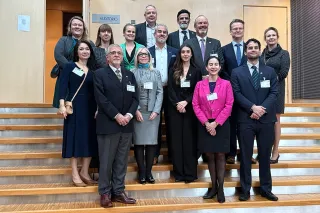A future based on renewable energy sources and electrification requires critical and valuable metals. In order for European companies to have access to them, metal refining must be developed with joint effort. A recent European research project demonstrated this in very concrete terms.
It is easy to defend electric cars, solar panels and wind turbines. And it can be hard to admit that they require critical and valuable metals that are obtained from mines. For Europe, the most difficult question is not so much whether to set up a mine, but whether we have enough minable material. We are in short supply of rich ores and are largely dependent on metal imports.
Consequently, in addition to rich ores, Europe is now looking at low-grade sources, such as ores and metal refining wastes with lower than usual concentrations of the desired metals. This was also the focus of the four-year international METGROW+ project coordinated by VTT that we just completed.
The results have been promising. We found ways to increase the recovery of, for example, important battery metals, cobalt and nickel, profitably in Europe while managing the environmental impacts. We developed new methods and combined old ones.
The best experts and local knowledge
We brought together the best experts in each method from across Europe. But this was not the only reason to seek an international perspective. We needed local knowledge of legislation and economics. Of course, Europe has a common vision of the waste hierarchy, but local practices determine how profitable and responsible metal recovery at any given place.
Some of the research groups pre-treated raw materials, such as laterite ore as well as jarosite and goethite from the zinc industry, and distributed the samples to different parts of Europe. The samples were fed into numerous different processes again and again with new variables. Because this kind of iteration required its own kind of expertise, it was controlled in a centralized manner.
Quality work requires peace to do the job
After four years, the project ended on time. In the construction industry, this would perhaps be a miracle, and it commands respect at research institutes as well.
The best thing is not that we got the research report out on time, but that each party was allowed to do their job in peace as per the agreed schedule. This was successful because everyone handled their share on time from the first raw material handler in the chain, and each industrial partner provided their comments at the appropriate stages. The peace to do the work meant that each party was able to do its job as well as possible.
Smart division of labour and responsibility are also needed when the research results are translated into practical work. Europe will overcome the metals shortage through European cooperation.






